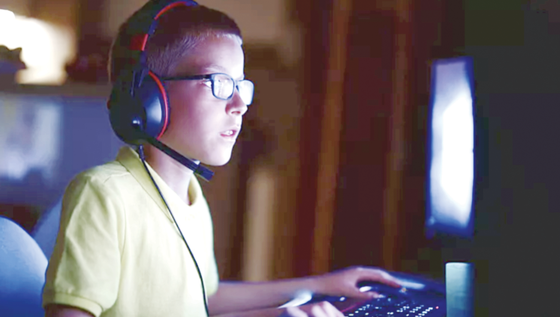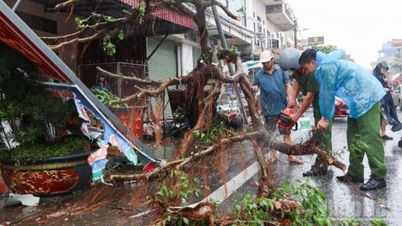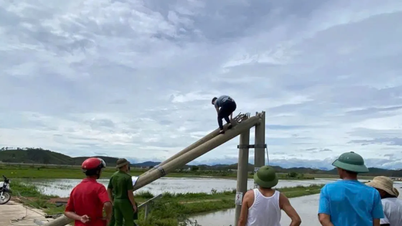SGGP
In a world fueled by hyper-connectivity, cybersecurity has become a hot topic and a top concern. Euronews, in collaboration with Kaspersky, has produced a series of articles about children being targeted by organized cybercrime and how experts think to deal with it.
 |
| Staying up late online is one of the signs that children are involved in organized cybercrime. Photo: KaSpersky |
Personal aura
Barbara Gemen’s son began his involvement in cybercrime at a very young age. “My son started when he was 8 years old, when he ordered a gun from Poland, which was delivered to our home in Bulgaria. When I opened the package, I was completely shocked.” Monitoring his every move, Barbara discovered that “he would wake up in the middle of the night to order things without paying. That’s when I discovered he was working with an international group of hackers.” She tried to report it to the police, but was accused of “exaggerating.” She then decided to train herself in cyber security and is now a special cyber volunteer for the Dutch police.
According to Mike Jones, a former hacker, security researcher and consultant, children have been identified as potential cybercriminals. Organized criminals are increasingly targeting children who are addicted to gaming. “Online gaming and hacking are closely related, players try to understand if they can create some advantage or identify some kind of vulnerability in the game to increase their power or resources. This is the main motivation for them to commit cyberattacks (hacking), the expert explained.
Dr. Kelli Dunlap, a clinical psychologist and game designer, believes that young hackers are easily lured into dangerous attacks because their brains are not yet fully developed. “Teens don’t think about the consequences of their actions. Their brains are rapidly developing with the ability to learn new things, adapt and solve problems, but they lack the parts of their brains that predict consequences because they have no life experience.”
Meanwhile, Christian Funk, an expert at Global Research and Analysis on cybersecurity, argues that young people are easily influenced by movies that depict hackers as heroes, leading them to engage in cybercrime to prove themselves to their peers.
Signs and treatment
The EU Kids Online 2020 research paper found that 62% of young people in Europe access the internet every day. The average time they spend online is 2 hours and 6 minutes a day, increasing to 3 hours and 16 minutes on weekends. While playing games and using apps, they face the risk of being lured into organized crime.
Mike Jones revealed: “Cybercriminal organizations always identify children who have the ability and knowledge to become cybercriminals. They will then try to form a relationship with the target through the game.” Once they have gained trust, they will lure the children to carry out attacks from simple to complex.
Cyber experts have compiled the three most obvious signs that a child is involved in cybercrime and how parents should handle it. The first is that they spend more time online than usual, even at night or during school hours. Try to monitor the amount of time your child spends online and make sure they are not playing games. The next sign is that they have multiple online accounts, as well as multiple gaming accounts. Young hackers can have multiple email addresses, IP addresses and even bank accounts. The third sign is a change in language, using many difficult words.
Like most social activities, the world of hacking has its own language. If your child is involved in hacking, they may start using new slang terms you’ve never heard before like script kiddies, DDoS, doxing, ops, bots…, using code words to tell others to hide information when someone invades their space.
When your children or children you know have all of the above signs, network experts advise parents to immediately contact authorities or experts for advice, to avoid or minimize bad consequences.
Source







![[Photo] Binh Trieu 1 Bridge has been completed, raised by 1.1m, and will open to traffic at the end of November.](https://vphoto.vietnam.vn/thumb/1200x675/vietnam/resource/IMAGE/2025/10/2/a6549e2a3b5848a1ba76a1ded6141fae)






























































































Comment (0)